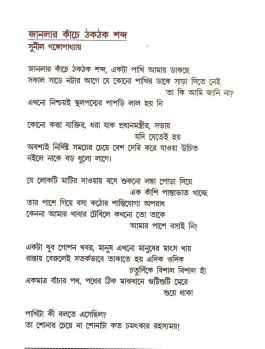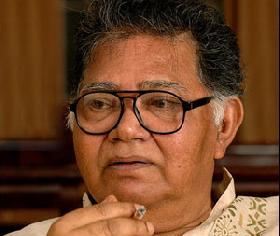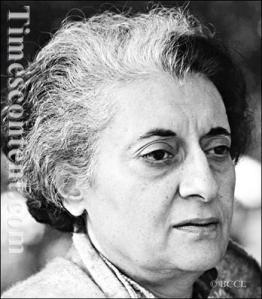“Mon bhalo nei, mon bhalo nei, mon bhalo nei
Keu ta bojhe na, sokoli gopon, mukhe chhaya nei
Chokh khola, tobu chokh buje achhe, keu ta dekhe ni
Protidin kaate, din kete jaay, ashay ashay ashay ashay ashay ashay…”
Feelin’ blue, feelin’ blue, feelin’ blue
No one knows, all hidden, eyes too
Eyes open, yet closed, no one saw
Days fly, nights fly, hopin’ over hopin’ over hopin’ over hopin’ …
________________________________________________________
Now, this poet made me blue many times. He always had this habit of making his readers blue. He did that again, one last time this morning, when I got the news of his death. I wept one last time, for him.
I hope this is the last time I did it, for him. I hope this is the last time he did it, to me. We are too old for such corny stuff, right? Weeping and all? I know he wouldn’t like it. I wouldn’t like it either. It’s time to grow up. So, this is just once, only once.
“I won’t cry, I won’t cry, no, I won’t shed a tear.”
Our ever-young Bengali poet Sunil Ganguly — more formally Sunil Gangopadhyay if we used his Sanskrit name — is no more. But because I’m writing this blog sitting in New York, ten thousand miles away from Calcutta, Bengal, India where he so suddenly passed away, and I’m writing this blog primarily for an English-speaking audience across the world, I prefer to use his Anglicized last name Ganguly. Sunil Ganguly. Like the way the Western “user-friendly” world forced me to use my Anglicized last name Banerjee, abandoning my Sanskrit last name Bandyopadhyay. In this life in exile (however hard I try to be a part of a global world, pretending this exile really doesn’t matter to me that much and that I’ve really become a universal citizen), there are times when you feel how enormously these musicians and artists and poets and authors and filmmakers and humanists matter to you.
Their departures stun you, shake you to the core. Because they have always been such an important, inseparable part of your own existence. No matter if you’ve ever met them or talked to them. No matter how much physical distance you’ve had with them, with no possibility to meet them or talk to them at all. They have always been with you — as a friend, as a brother, as a sister, as a mentor, as a family member. As if you could always talk to them, had there been an opportunity, about their most recent novel, music CD, or maybe, the rise and fall of the American empire…or even, the place in Calcutta where they have the best Indian Chinese, biryani and spicy fish…and in Sunil’s case, a healthy dose of a mighty-hard drink. (And I thought those drinks could do no harm to his ever-young heart!)
These are people that have always been a part of your identity.
 Sunil Ganguly, whom I actually met once and talked twice here in New York at the power-poet-couple Jyotirmoy-Meenakshi Duttas’ place, was one such personality. The persona Sunil Ganguly and the poet Sunil Ganguly have always been a part of my cultural consciousness. From that point of view, he was as close to me as Rabindranath Tagore, Nazrul Islam, Satyajit Ray, Bibhutibhushan Banerjee, Mark Twain, Charles Dickens, Maxim Gorky, Victor Hugo, Shakespeare, Robert Frost, Bob Dylan, Beatles, Bob Marley, Mahashweta Devi, Ritwik Ghatak or Mrinal Sen.
Sunil Ganguly, whom I actually met once and talked twice here in New York at the power-poet-couple Jyotirmoy-Meenakshi Duttas’ place, was one such personality. The persona Sunil Ganguly and the poet Sunil Ganguly have always been a part of my cultural consciousness. From that point of view, he was as close to me as Rabindranath Tagore, Nazrul Islam, Satyajit Ray, Bibhutibhushan Banerjee, Mark Twain, Charles Dickens, Maxim Gorky, Victor Hugo, Shakespeare, Robert Frost, Bob Dylan, Beatles, Bob Marley, Mahashweta Devi, Ritwik Ghatak or Mrinal Sen.
Sunil Ganguly was the big brother who taught me how to fall in love, make love and hurt in love. He taught me how to imagine a woman’s love. He taught me how to write love letters. He taught me how to grow up — loving and hurting, and then loving again. He taught me how to hope…and imagine hope.
This is a milieu of a consciousness that made me the “me” that I am today. This half century-old me. If they were not with me all along, I would not have had this identity, this brain, this belonging to this human, thinking, moving, seeing life.
When they leave my familiar world, one after the other, they also take away a part of “me” forever with them. Their departure is truly like severing with a limb or an organ. It’s excruciatingly painful — physically and emotionally, and it’s extremely difficult to deal with it their post-departure. Especially if you do not go through a major therapy… and rehabilitation. And sitting here ten thousand miles away, there is hardly any rehabilitation. The society of familiar people with familiar, shared emotions, knowledge and values that you need for the rehabilitation is simply absent. Here I write about poet Sunil Ganguly, Tagore, Satyajit Ray, et al., and you know you’re not making your readers cry. You bereave — all by yourself.
Therefore, the tragedy and the pain and trauma associated with that tragedy remains with you forever. It literally debilitates you. You’re now dealing with a lost limb or organ, with nothing to make up for it. Worse, you know this is not the first time it happened to you, and neither would it be the last time.
Tagore died way before my birth. My mother died a painful death when I was a young man in my early twenties causing major, lifelong bereavement. But at least I was back there, in the midst of a supportive society. Satyajit Ray’s death in 1992 and Suchitra Mitra the Tagore singer’s death in January of 2011 touched me, impacted me this way. The news of Sunil Ganguly’s death this morning was a similar jolt…perhaps a bigger jolt because first, he was so forever young…as if he was born in 1974 and not in 1934. Most importantly, deep inside, I never thought Sunil Ganguly could actually die. I never thought he would be old one day, and die.
But he did. This is the first time when he kind of let me down. Well, at least he didn’t lay sick in some nursing home bed with tubes coming out of his nose and arms and legs to keep him alive. No, he would refuse to wear those tubes and artificial ways to sustain “life.” He would refuse to be a part of such artificiality.

A Bengali, Indian poet just died in Calcutta — ten thousand miles away from New York where I live. I know in the next day or two, millions of Bengalis from both the West and East sides of the artificial border would pour down on the streets of Bengal to pay their last respect to the ever-young poet. I won’t be there. I was not there when they paid their last respect to Satyajit Ray or Suchitra Mitra. Or, Tagore in 1941. No, I won’t be a part of that million-man march accompanying the poet and his mortal remains to the Hindu crematorium.
But I can only imagine. Sunil Ganguly was one of the major imagination teachers I’ve had. I can imagine.
I’ll show to the world that even though he kind of let me down, I did not let him.
I can still imagine, even in this dreaded exile. I can still hope.
I can still imagine that even in this dreadful, horrific time with the wars and violence and bombing and beating and droning and waterboarding, a beautiful, rain-soaked sun is slowly rising in the Eastern sky.
It don’t matter if you’re in exile or not.
_________________________________________
Jodi nirbasan dao
Ami osthe anguri chhoabo
Ami bishpan kore more jabo
If you send me in exile
I’ll touch my ring to my lips
I’ll take poison and die
Bisanno aloy ei Bangladesh
Nodir shiyore jhuke pora megh
Prantare diganta nirnimesh
E amari sare tin haat bhumi
This Bangladesh in a pale dim light
Clouds hover on river banks
Borderless horizon of bountiful fields
This is indeed my three and a half yards of space
Jodi nirbasan dao
Ami osthe anguri chhoabo
Ami bishpan kore more jabo
If you send me in exile
I’ll touch my ring to my lips
I’ll take poison and die
Dhankhete chap chap rakto
Eikhane jhorechhilo manusher ghaam
Ekhono snaner aage keu keu kore thake nodike pronam
Ekhono nodir buke mochar kholay ghore luthera, pherari
Shohore, bondore eto agni-brishti
Brishtite chikkon tobu ek-ekti aparup bhor
Blood splatters on green paddy fields
Men shed their sweats right here
Even today some bow heads to the river
Before they take a dip, bath
Pirates speed their float boats down the river
Towns and ports with relentless rain of fire
Yet, rain shower emerges one or two indescribable, beautiful dawns
________________________________________________________
Sincerely (and Sadly) Writing,
Partha
Brooklyn, New York
###
Sitting by your airplane window
Angry waters raged and uprooted train tracks
Bridges collapsed, scattered kids near the belly of
dead animals
An old man’s eyeglasses float down the waves
Man found desperate friendship with treetops
These are fragments of the sight – a type of truth
Partial, yet too intense
These partials truths indeed become primary
During these terrible times
Even if you cried out of your cloud castle
It would never resonate with the collective tragedies
down there
Your chapped lips
For how long they did not get streaks of a kiss
Dark, deep fatigue visible under your eyes
Faces bear marks of a dejected loverBut you chose this path yourself
With no more ways to return no more
Indira dearest, please do not fly by North Bengal skies
Or those of Assam,
sitting by your airplane windowIt is a dangerous game
Yet I warn you one more time –
You look down and find miles of barrenness
You see rules of nature and ruthless rulelessness
And their great devastationYou see huge currents of new flood waters
As if the cloudy sky lay upon the land, upside down
Interspersed by houses like small islands
Lush green heads of trunkless treesSeeing the sight of those floods
Some day, Indira, these words might slip off your tongue:
“Oh, how beautiful it is!”
###


